Welcome.
I want to tell you about what it means to me to be an Icelandic composer and how I find inspiration for the music I write. We will, admire Icelandic mountains, dig up old memories and travel on the highway north.
When I think about the beautiful sounds of Iceland’s nature, the mountains are an integral, and perhaps also incomprehensible, part of that soundscape. But, how do mountains sound?
Before we start: This article should be listened to as much as read. I suggest recordings of my work at several points that you can listen to while you read.
The first recording…
…is of my art song “Winter Fog” (Vetrarþoka) performed by singer Rannveig Káradóttir and pianist Birna Hallgrímsdóttir. This is one of my favourite recordings of my music. They make the music their own.
When I start writing a new composition, I first look for inspiration. After many years of navel-gazing, I have found that the best well is in old memories, Icelandic nature, in the vastness, by the sea, by the mountains. I live in Brighton, England. Brighton is good to live in and Brighton is a very fun city. But! It is sadly lacking in mountains.
I grew up in Kópavogur, a suburb of Reykjavik in Iceland, but my father’s side of the family is from the north, from Hvammstangi, by a beautiful fjord, and I spent a lot of time there as a child. It is a small, quiet town, with about 300 inhabitants. I try to go there a few times a year to think, to write, to clear my mind and recharge my musical batteries.
Let me take you on a journey from Brighton to Reykjavik, and from Reykjavik to Hvammstangi. On the way there we will visit some of my favourite mountains.
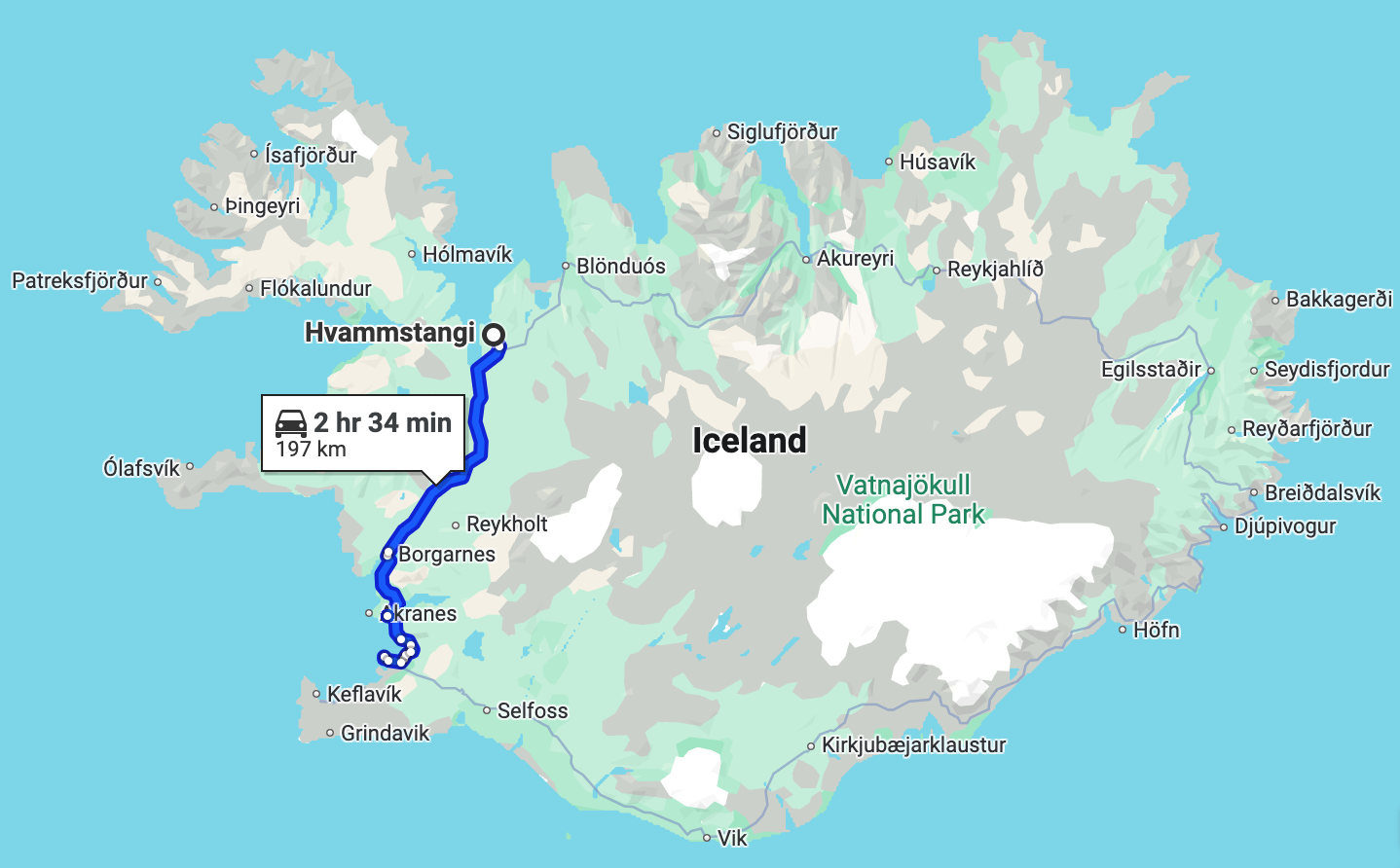
Immediately in Reykjavik, across the fjord to the north, mount Esja dominates.
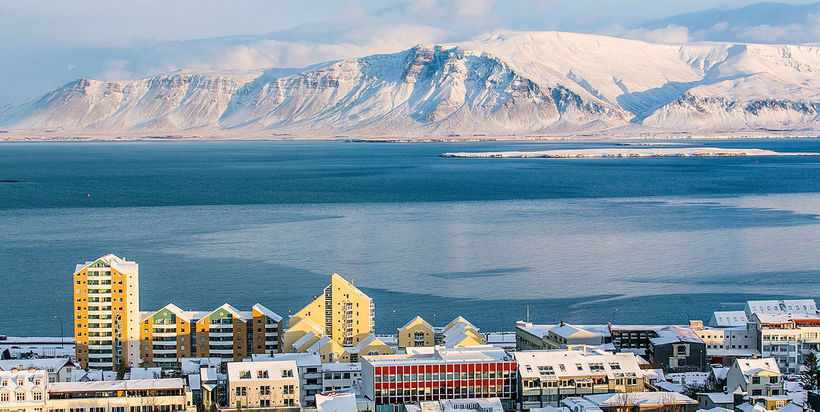
I grew up seeing mount Esja daily. We drive towards it and then around it to get on the road that will lead us north.
Terns dive for food in the mirror-smooth sea. The sun is shining. Ahead is nothing but the promise of a lovely, liberating wilderness. Around the corner is fjord Hvalfjorthur.
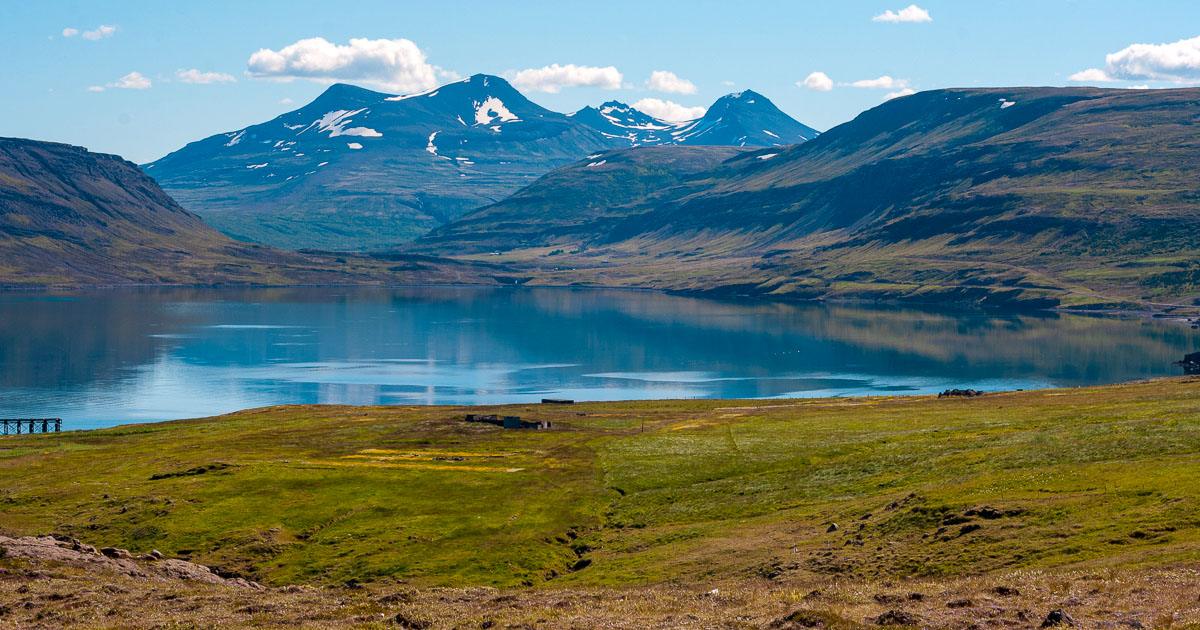
When I was a child on the way north with my mother, father and brothers, we often stopped at the same small waterfall on the northern side of the fjord and ate our lunch. Spectacular, unobstructed views!
The second recording…
“Now in heaven as on earth” (Nú er á himni og jörð) performed by Kordia chamber choir from Reykjavik. Kordia has been kind enough to premiere three works by me in the past.
We finish our lunch, get up and continue our drive. The countryside spreads out before us. The marvellous Borgarnes bridge soon appears, we drive over it and on the other side a reward awaits us: a magnificent view to the south over to mount Hafnarfjall. We stop and stare.
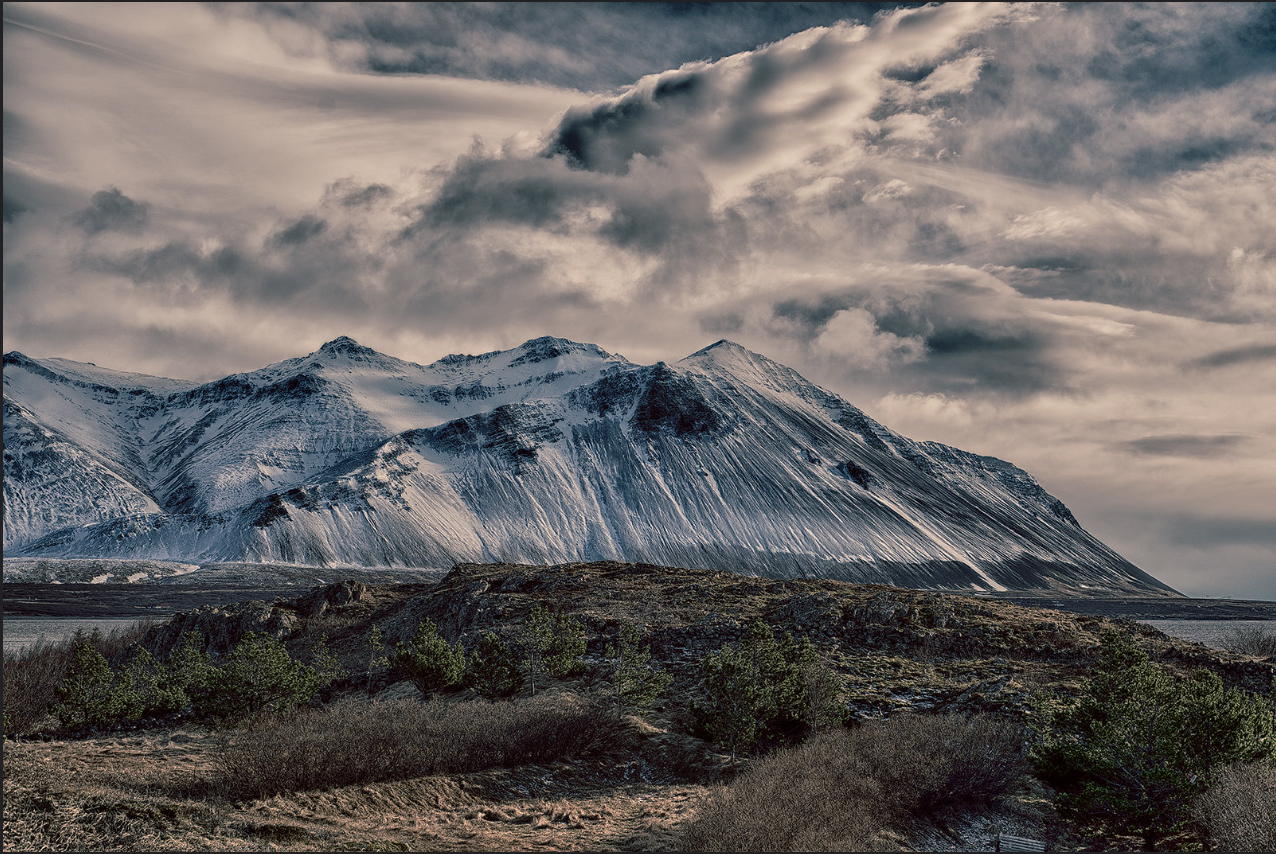
I hear a quiet, yet convincing soundscape when I think of my mountains. The emotional connection is sometimes so strong that nothing else is able to enter my mind.
The poet Cécile Sauvage, mother of composer Olivier Messiaen, wrote at the beginning of the 20th century:
“I suffer from unknown, distant music.”
I relate to this statement.
Is this homesickness? Maybe.
Synaesthesia? I don’t think so.
Nostalgia? Probably.
Next on our journey we approach Bifrost University, mount Dýjahnúkar and Baula on our left, soon Norðurá river appears on the right. This is one of my favourite areas in Iceland. Such a diverse and beautiful landscape. Lava fields, meadows of ancient moss. The history of the land, the rock layers, literally rise up from the earth.
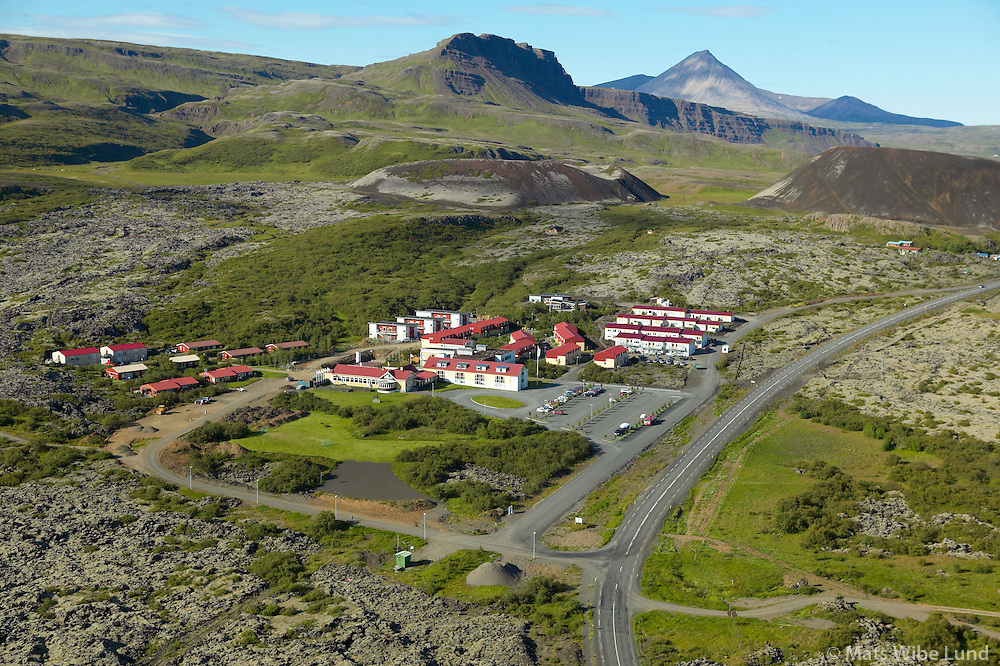
We start to drive uphill, up the heath that separates west and north-west Iceland. Barely nothing grows up here. The true expanse. Nothing but space. Space to think. A place to be. The aptly named mountains Snjofjoll (Snow mountains) and Trollakirkja (Troll church) are on our left when we reach the top. True silence.
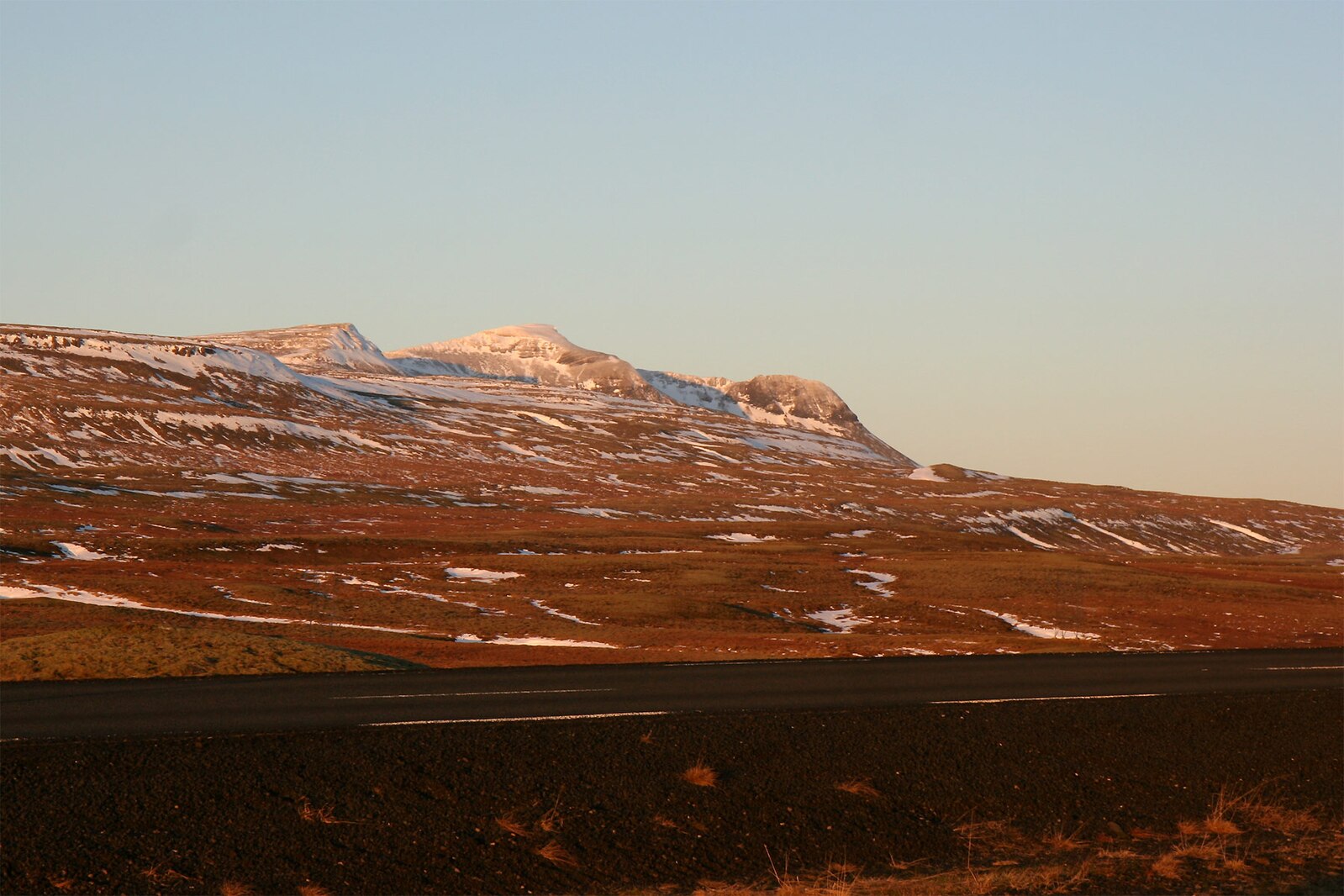
You have to listen carefully, take your time, forget everything else, and then maybe you will hear an echo deep inside the peaks.
When I manage to find the sound of the mountains in the work I’m writing, I completely forget how time passes. I don’t feel hungry, I don’t feel tired. I sink deep. I write and write. I feel like I’m floating in the music, in timelessness.
Third recording…
“I only write alto flute parts when I miss you” – dedicated and performed by my wife Helen Whitaker on alto flute. We spent a lot of time finding the right emotions and shape for this music and I’m very happy with the result.
We drive down from the heath. Hrutafjorthur fjord appears. We are in the north now. We approach Hvammstangi. In a little while we turn off the highway to the left and drive in a straight line north along Vatnsnes peninsula.
There is a refreshing breeze that enters the fjord from the north.
We have arrived.
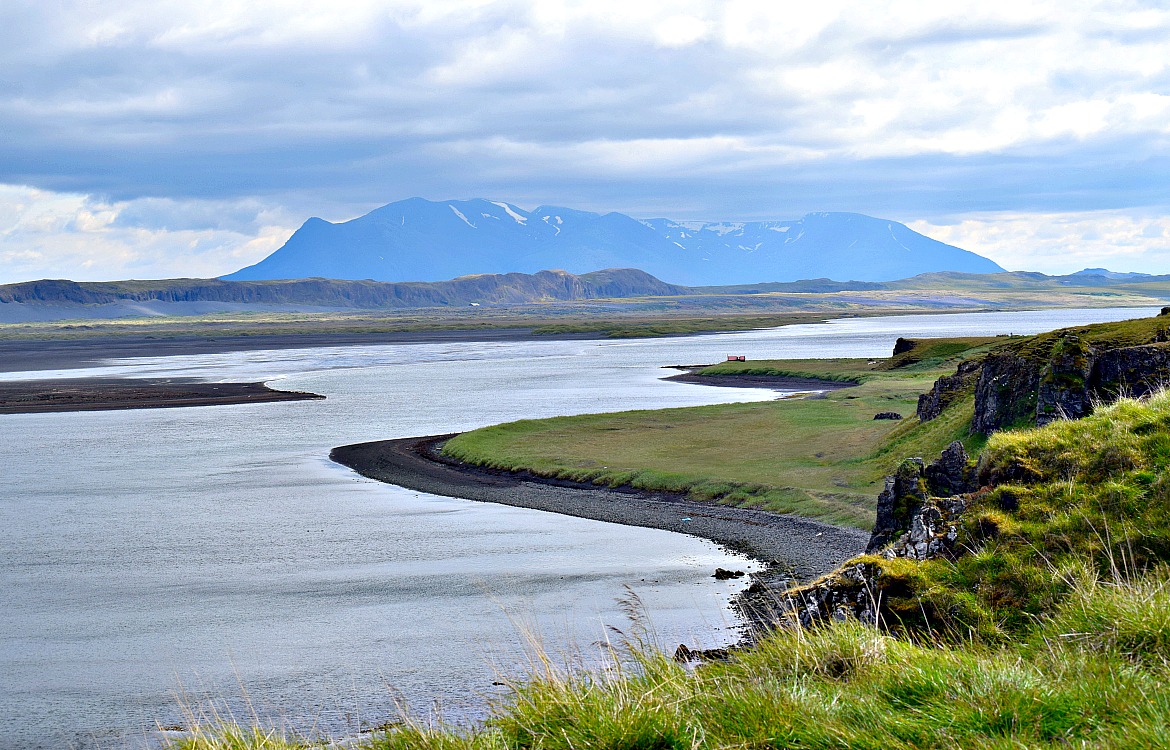
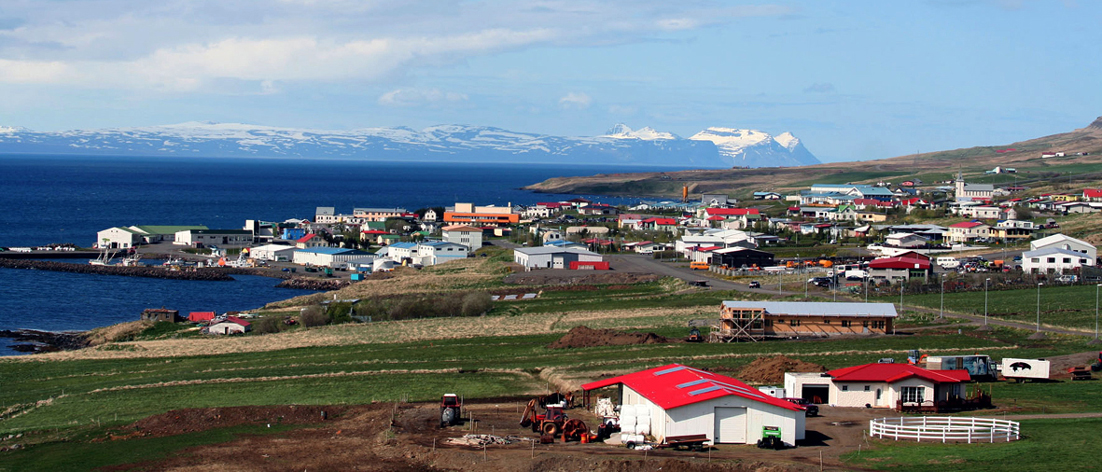
I wander just outside the town, sit down on the shore, and listen.
What do I hear?
Repetition. Stability. Infinity. Power. Life force. Vitality. Security. Continuation. But at the same time ‘transformation’, a very slow transformation. Renewal. Disciplined and patient process.
When I live in the world, first of all I listen to the world. I have been drawn to the sounds of nature all my life. Birdsong, wind, babbling in a stream, waves breaking on the shore.
When I listen this way, I sense my mortality, in a good way. I feel the cycle, the cycle of life, infinity, and all those who have experienced the same before me, and all those who will experience the same after me. It is beautiful.
Fourth and final recording…
“Castle in the Air” (Loftkastali) – performed by cellist Clare O’Connell. Clare is a great musician who has performed this work many times around England. Other cellists have performed the piece in Dublin, Cardiff and Iceland.
—
Thanks for joining me on this journey.
Do you want more? Then you might be interested in becoming my patron here on Music Patron.
More here: https://musicpatron.com/composer/helgi-r-ingvarsson/
Kind regards,
Helgi
1 thought on “The sounds of Icelandic mountains”
Pingback: The sounds of Icelandic mountains (Hvernig hljóma fjöllin?) – Helgi R. Ingvarsson